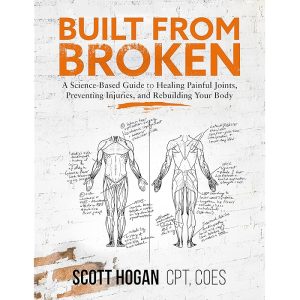Description
**”Moving Beyond the COVID-19 Lies: Restoring Health & Hope for Humanity”**
The COVID-19 pandemic has been one of the most disruptive global events in modern history. It has affected billions of people, leading to widespread illness, death, economic collapse, social isolation, and a deep erosion of trust in governments, healthcare systems, and even the scientific community. As the world begins to emerge from the immediate crisis, it is clear that many narratives, policies, and actions surrounding the pandemic have been deeply controversial. In this context, it’s important to reflect critically on the information that shaped our responses and to consider how we can move forward—both in terms of public health and in healing the psychological, social, and cultural wounds left by the pandemic.
### 1. **Understanding the Misinformation and Mismanagement**
Many people feel that the pandemic response was marred by misinformation, contradictory messaging, and a lack of transparency. For example, early in the pandemic, governments and health organizations presented mixed messages on issues like mask-wearing, lockdowns, and vaccine efficacy. At times, key public health figures made recommendations that seemed to evolve or conflict with one another, eroding public trust. Some of these flip-flops were due to the rapidly changing nature of the virus and the novel science behind it, but others were perceived as political decisions or failures of communication. This confusion sowed division, with individuals questioning whether they were being told the full truth.
Furthermore, misinformation—both intentional and accidental—spread widely, with social media platforms often amplifying false claims. Conspiracy theories and alternative narratives proliferated in a climate of uncertainty and fear, leading to further polarization. For many, this created a sense of distrust not just toward the authorities, but also toward the medical and scientific communities.
### 2. **The Impact of Globalization on Pandemic Response**
The interconnected nature of the modern world undoubtedly played a role in both the rapid spread of the virus and the disparity in responses. Global supply chains, international travel, and economic interdependence allowed COVID-19 to leap from country to country within weeks, making containment nearly impossible in many cases. Countries with better resources, infrastructure, and public health systems had a much easier time controlling the virus, while others—especially those in the Global South—suffered disproportionately due to weaker health systems and economic instability.
In retrospect, it’s clear that the pandemic highlighted not only the vulnerabilities of individual countries but also the flaws in our global system. A more coordinated, equitable global response might have helped mitigate the disaster. However, competing national interests, economic pressures, and geopolitical tensions often slowed collaboration. Many argue that the current global health infrastructure is not fit to handle a crisis of this magnitude and that reforms are necessary to prevent a similar outcome in the future.
### 3. **Restoring Trust in Science and Public Health**
One of the key lessons from the pandemic is the need to rebuild trust in science and public health systems. While science can be messy, uncertain, and evolving, it is essential that the public is given clear, honest, and transparent information. If anything, the pandemic has highlighted the importance of scientific literacy and critical thinking, not just in the medical field, but across all sectors of society.
However, restoring trust is not simply about providing more information. It also requires accountability. Governments and health organizations must be willing to admit mistakes, acknowledge shortcomings, and learn from their experiences. Public health officials need to engage in more open dialogue with communities, especially those who have felt marginalized or ignored during the pandemic.
### 4. **Personal Responsibility and Holistic Health**
As we move beyond the pandemic, there needs to be a broader conversation about personal responsibility and health. While COVID-19 exposed the importance of good hygiene, vaccines, and public health measures, it also highlighted the importance of maintaining overall health—both physical and mental. In many ways, the pandemic has deepened our understanding of how interconnected our physical, emotional, and social well-being are.
A “post-COVID” world offers an opportunity to rethink how we prioritize health in our societies. The focus should not just be on preventing and treating infectious diseases but on building resilient, healthy individuals and communities. This includes addressing mental health crises, promoting healthy lifestyles, improving access to healthcare, and emphasizing social connection and well-being.
### 5. **Economic Recovery and Social Justice**
The economic fallout from COVID-19 has been profound, and the recovery process is still ongoing. Governments have pumped trillions into stimulus packages, but many people—especially those in vulnerable communities—are still struggling with job loss, food insecurity, and mental health issues. As the world looks toward recovery, it’s important that we do not return to a system that perpetuates inequality. Instead, we must use this moment to rethink our economic models and invest in equitable growth.
The pandemic exposed deep social and racial inequalities in health outcomes, with marginalized groups suffering disproportionately. Moving forward, we have a unique opportunity to address these disparities, ensuring that future health crises do not hit the most vulnerable populations the hardest. Equity, not just efficiency, should be a cornerstone of our recovery efforts.
### 6. **Hope for the Future**
While the COVID-19 pandemic has left scars, it has also shown humanity’s resilience. The rapid development of vaccines and treatments, the outpouring of community support, and the innovations that emerged in the face of adversity all speak to the strength of the human spirit. Moving beyond the pandemic means not only recovering from the immediate crisis but also using the lessons learned to build a better future.
We must recognize that hope is essential for moving forward. Hope is not just wishful thinking; it is a belief in the possibility of a better future. It is the foundation for rebuilding social connections, restoring communities, and creating healthier, more just societies. Moving beyond the “lies” or the misinformation of the past requires us to find common ground, focus on shared values, and foster a renewed sense of solidarity and collective purpose.
### Conclusion: Moving Beyond the Lies, Embracing a Better Future
“Moving Beyond the COVID-19 Lies: Restoring Health & Hope for Humanity” is not just about unmasking the truth of the past but also about forging a new path forward. As we recover from the pandemic, we must build a world that is more resilient, compassionate, and equitable. This involves reimagining how we interact with one another, how we prioritize health, and how we approach global cooperation.





Reviews
There are no reviews yet.